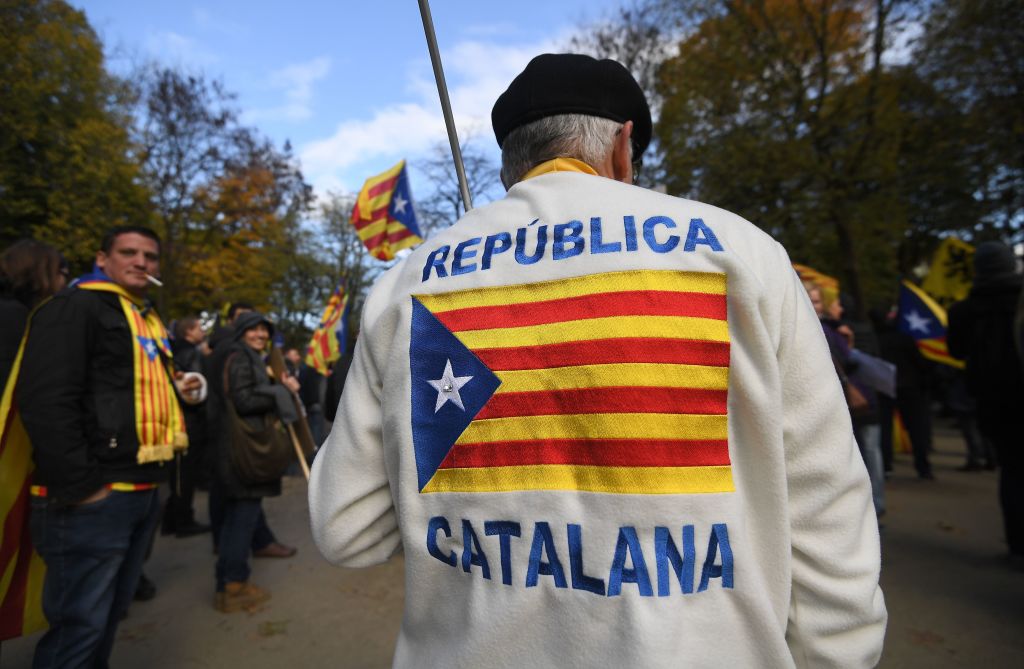Rajoy’s statement, made in a TV interview this week, was a barely-disguised plea to Catalans to put an end to the secessionists’ latest attempt to divorce Spain. Yet the most recent polls suggest that the December elections will be an extremely close-run affair. Catalonia, it seems, has still not fallen out of love with the idea of independence. In a survey published in El Pais this week, secessionist and nationalist parties were each forecast to take around 46 per cent of the regional vote. Catalonia’s deposed pro-independence president, Carles Puigdemont, has said this election is the most important in the region’s history; and, with a record 80 per cent turnout expected, Catalans appear to agree with him. The vote will also reflect how Catalans feel about Madrid’s handling of the Catalonia issue over the last few tumultuous months. This is where the Spanish prime minister has cause for concern, because his government’s heavy-handed behaviour since the referendum may have pushed many Catalan neutrals into the secessionist camp.
Rajoy’s decision to press the constitutional nuclear button by activating Article 155 of the Spanish constitution, which allows Madrid to take control of a rogue autonomous region, remains controversial. After repeated failure from the separatists to outline their plans for secession, Rajoy claimed it was the only card left for him to play. He sacked the regional government and pro-independence politicians were locked up. Puigemont fled to Belgium and, in the eyes of many separatists, instantly achieved martyr-like status. He remains in Brussels subject to a Spanish arrest warrant for rebellion ad misuse of public funds.
Yesterday, Puigemont’s imprisoned colleagues appeared before Spain’s Supreme Court in a bid to win their freedom in order to take part in this month’s election. Campaigning begins on midnight on Monday and what is certain is that this will be a tense and, most likely, unpleasant affair. Relatively uneventful as the last couple of weeks have been in Catalonia, nationalist and secessionist passions simmer beneath a deceptively-calm surface. Arriving at a point where the use of Article 155 was deemed necessary was sad enough in itself: its imposition spoke of a total communication breakdown between the governments in Barcelona and Madrid. Yet Rajoy’s administration was being accused of using repressive tactics long before dusting off this previously-unused clause.
Cast your mind back two months to the October referendum. The Catalonia government went ahead with the vote despite repeated warnings from Madrid that it was illegal. The separatists’ bullishness dismayed many Spaniards, who saw the seeds of civil unrest in their disregard for Spanish law. On October 1st, the world looked on as national police – clad in full riot gear, as if to combat a violent rebellion – manhandled old ladies and hauled women out of polling stations by their hair. In the end, 92 per cent of Catalans voted for splitting from Spain; but, with many anti-secessionists refusing to participate in the referendum, turnout was only at 43 per cent.
Now, Spain and the world looks nervously ahead to the December 21st election. The vote is being billed as an effective plebiscite on Catalonian independence, as was the last regional election in 2015, which brought a pro-independence coalition to power. Whichever way it goes, though, we can be sure of one thing: the Catalonia issue is not going to be resolved anytime soon.






Comments